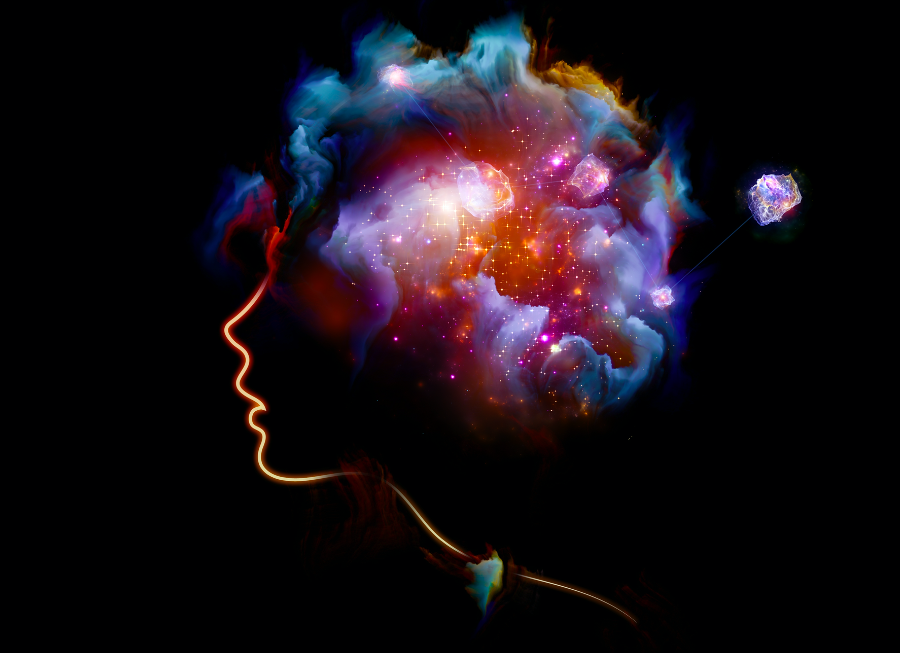In our Autumn 2020 issue, our resident meditation expert Sandy Newbigging provided us with a great reflection on the challenges and gifts of being a truth seeker. We previously published a sneak peek of this article to our website, and today, we’re sharing the whole thing. Read it below.
Truth Or Dare
The Pros and Cons of Being a Truth Seeker
by Sandy Newbigging
We may think we want to know ‘the truth’, but do we really? As a monk, meditation teacher and creator of the Mind Detox method, my goal is to do whatever I can to live my life with facts and truths, rather than fictions or falsehoods.
I’m not alone in this quest, as many similarly intentioned souls, on spiritual paths, also aim to ‘see beyond the illusions of the mind’ (also known, in the language of Sanskrit, as the seeing beyond the ‘maya’). If you are reading this, then there’s a high likelihood that you are a truth seeker too.
Although knowing ‘the truth’ may seem like an obvious thing for us all to want, there appears to be some pros and cons that come into play when seeking truth. Knowing these can help us to prepare for the possible consequences of finding out what’s true, and provide comfort when faced with the not-so-easy knock-on effects.
For example, one con is that the truth can sometimes be unpleasant, ‘dark’ or scary. We may uncover certain things about our self, other people or the world we live in, that can be hard to process, understand, look at and even live with. If we are willing to see these not-so-nice ‘home truths’, without emotionally spinning out, then we will remain resilient and gain the big rewards of not burying our head in the proverbial sand.
Another downside of being a truth seeker is known as ‘cognitive dissonance’. This is the mental discomfort that can be experienced when presented with alternative beliefs, or realities, that conflict with the ones we currently hold. This discomfort can cause us to reactively reject, and push away, any unwanted ‘truths’ and so being willing to experience this discomfort appears to be a prerequisite of progress.
Cognitive dissonance can also impact our relationships because some of the people we know and love may not want to know, and may not love us for sharing what we discover. This can make ‘truth’ a sometimes-isolated quest, with some friends falling away and others rejecting or ridiculing us, as a way of protecting their own beliefs, and not having their more ‘comfortable’ version of reality rocked.
On the bright side, there are a number of pros for living with our eyes wide open. Knowing the fuller story of any given situation is incredibly empowering. If it is a potential truth about yourself, then you can do something about it. You can take the correct steps to make positive changes and end up with a better experience of life.
Or, if it’s a truth about something possibly going on in the world, then gathering more information can help you to make more informed decisions, be better prepared for what’s potentially in the pipeline and, again, take the necessary steps to be safe and successful.
From a spiritual perspective, it is near impossible to fully awaken if we are not willing to look at certain aspects of life and know the real reality. As a result, I’ve observed that most paths tend to require what I refer to as an ‘info awakening’. This is when we work towards seeing beyond our conditioned beliefs, attitudes and assumptions, and become more able to see what’s really going on.
We stop believing everything we’ve been told to believe and start to form our own ‘conscious conclusions’. Or, said differently, as we wake up we can fully see beyond the ‘bulls**t’ and more quickly get a sense of if something ‘smells fishy’.
Here are 5 questions that can be used to find the facts within possible fictions:
- What am I being told to think and believe? Is it true?
- Who benefits from me believing what I’m being told?
- What if the opposite of what I’m being told is true?
- What else is happening that I’m being distracted from?
- What are both mainstream and alternative sources saying? Are there any differences? Why? Ask Questions 1-4 again if there is conflicting information.
Aim to form your own conscious conclusions by questioning your assumptions, challenging your beliefs, and doing your best to research the reality of any given situation. I’m not suggesting you completely ignore the evening news or believe all conspiracies at first glance. I’m saying own your mind. Don’t believe anything just because someone tells you to – including what I’m saying here! Gather information for all sides (from multiple sources) and be a warrior for the truth in a world of competing agendas and widespread worrisome headlines – especially when what you’re being told breeds fear rather than freedom.
Sandy is the creator of the popular Mind Detox and Mind Calm methods. Visit his website for more on his online sessions, club and academy.


